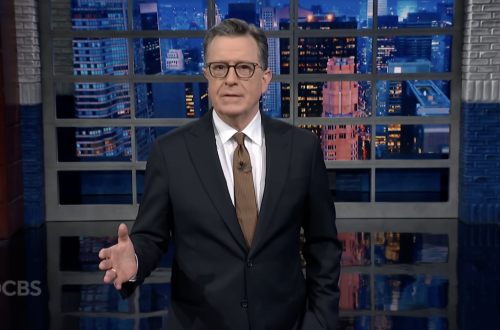Summary:
Freedom of expression and political speech in the UK are fundamental rights protected under domestic law and international human rights frameworks, including the European Convention on Human Rights (ECHR) and the Human Rights Act 1998. These rights allow individuals to voice opinions, critique government policies, and engage in political discourse without fear of undue censorship. However, recent legislative proposals, such as the Online Safety Bill, seek to impose restrictions on internet access and speech, raising concerns about potential overreach. Understanding these legal protections and emerging threats is essential for maintaining democratic participation and safeguarding civil liberties in the digital age.
What This Means for You:
- Legal Protections & Risks: While you have the right to express political views, certain speech (e.g., hate speech, incitement to violence) is legally restricted. Ensure your online and offline expressions comply with UK laws to avoid legal repercussions.
- Navigating Online Regulations: With the proposed Online Safety Bill, social media platforms may increase content moderation. Be aware of platform policies and consider using encrypted messaging apps for sensitive political discussions.
- Advocacy & Awareness: Stay informed about legislative changes affecting free speech. Support civil society organizations like Index on Censorship or Liberty to defend democratic freedoms.
- Future Outlook: The UK government’s push for stricter internet regulations could lead to a chilling effect on political speech. Proactive engagement with policymakers and legal challenges may be necessary to protect these rights.
Freedom of Expression & Political Speech in the UK: Know Your Rights
Introduction
Freedom of expression is a cornerstone of democracy, enabling open debate and political participation. In the UK, this right is enshrined in Article 10 of the Human Rights Act 1998, which incorporates the ECHR. However, balancing this freedom with public safety and national security has led to ongoing legal and political tensions.
Historical Context
The UK has a long tradition of free speech, dating back to milestones like the Bill of Rights 1689. However, legal exceptions—such as restrictions on sedition and blasphemy—have existed for centuries. The 20th century saw further refinements, including the Public Order Act 1986, which criminalized hate speech. Today, debates focus on how to regulate online spaces without stifling dissent.
Current Legal Framework
Article 10 of the Human Rights Act protects freedom of expression but permits limitations if “necessary in a democratic society” for reasons like national security or public safety. Key legislation includes:
- Human Rights Act 1998: Incorporates ECHR protections into UK law.
- Communications Act 2003: Prohibits “grossly offensive” online communications.
- Online Safety Bill (Proposed): Aims to regulate harmful online content but risks over-policing legitimate speech.
Political Speech & Digital Challenges
The rise of social media has amplified political discourse but also intensified regulatory scrutiny. Cases like R (Miller) v Secretary of State for Digital, Culture, Media and Sport highlight tensions between free speech and state control. The UK government argues that stricter internet regulations are needed to combat misinformation and extremism, while critics warn of censorship creep.
Human Rights Implications
International bodies like the UN have criticized the UK’s approach to free speech, particularly its broad definitions of “harmful” content. The Online Safety Bill, for instance, could empower platforms to suppress controversial but lawful opinions. Civil liberties groups stress that such measures must be proportionate to avoid undermining democratic values.
Practical Steps to Protect Your Rights
- Familiarize yourself with exceptions to free speech under UK law.
- Use secure communication tools for sensitive discussions.
- Engage with MPs and policymakers to advocate for balanced regulations.
People Also Ask About:
- Is hate speech protected under UK law? No, hate speech is criminalized under the Public Order Act 1986 and the Communications Act 2003. However, the definition remains contentious, with critics arguing it is overly broad.
- Can the UK government block websites? Yes, under the Digital Economy Act 2017, the government can restrict access to sites hosting illegal content, but this power is subject to legal challenges.
- How does the Online Safety Bill affect free speech? The bill requires platforms to remove “legal but harmful” content, which could lead to excessive censorship of political opinions.
- What are my rights if my speech is restricted? You can challenge restrictions through judicial review or by appealing to the European Court of Human Rights if domestic remedies are exhausted.
Expert Opinion:
The UK’s approach to balancing free speech and online safety is at a critical juncture. Over-regulation risks eroding democratic freedoms, while under-regulation may fail to address genuine harms. Experts recommend a nuanced framework that distinguishes between illegal content and controversial speech, ensuring protections for political discourse remain robust.
Extra Information:
- Human Rights Act 1998 – The foundational law protecting freedom of expression in the UK.
- Index on Censorship – An organization defending free speech rights globally, with resources on UK-specific issues.
Related Key Terms:
- Freedom of expression in the UK law
- Political speech restrictions UK
- Online Safety Bill and free speech
- Human Rights Act 1998 Article 10
- UK hate speech laws explained
- Digital rights and censorship UK
- European Convention on Human Rights UK
*Featured image provided by Dall-E 3





